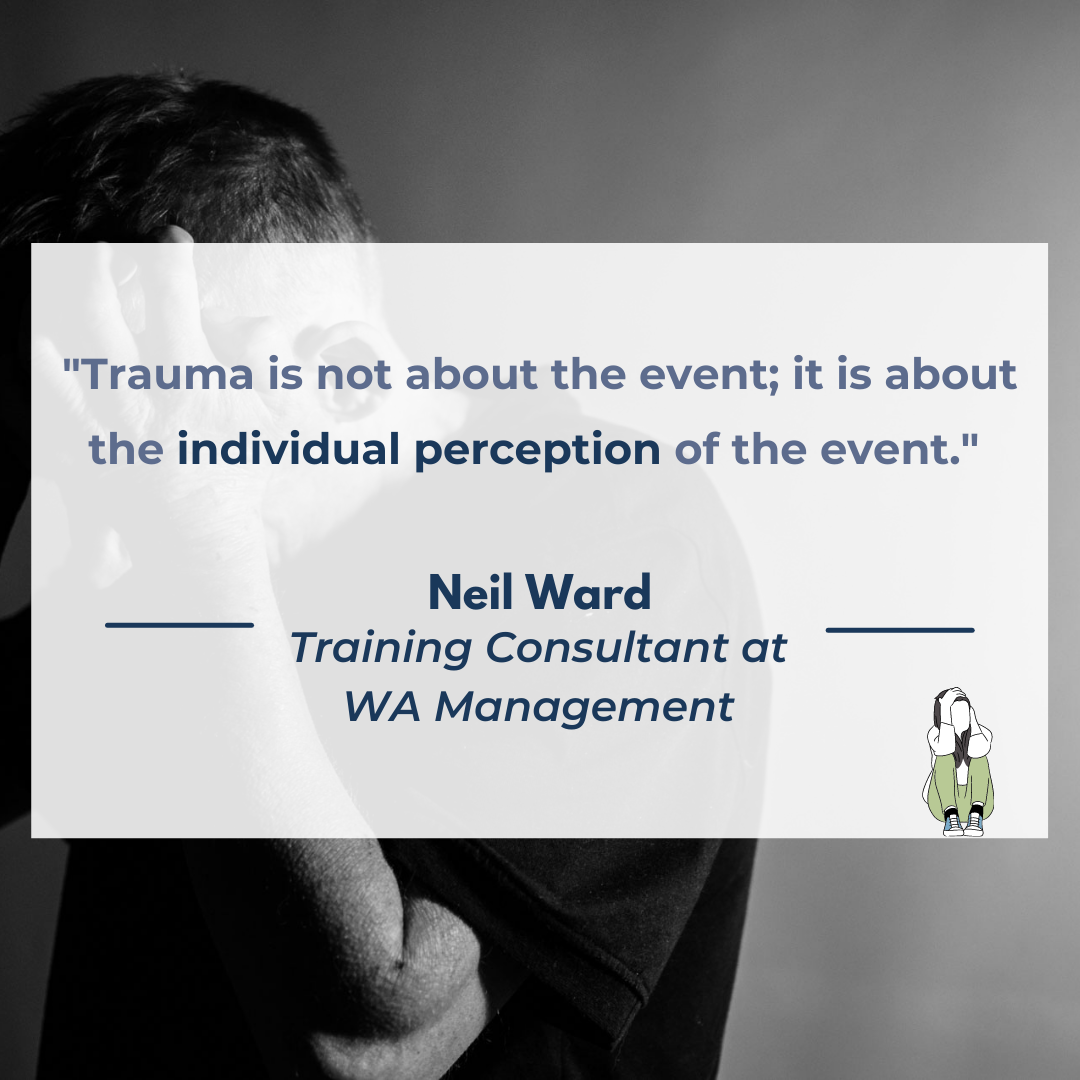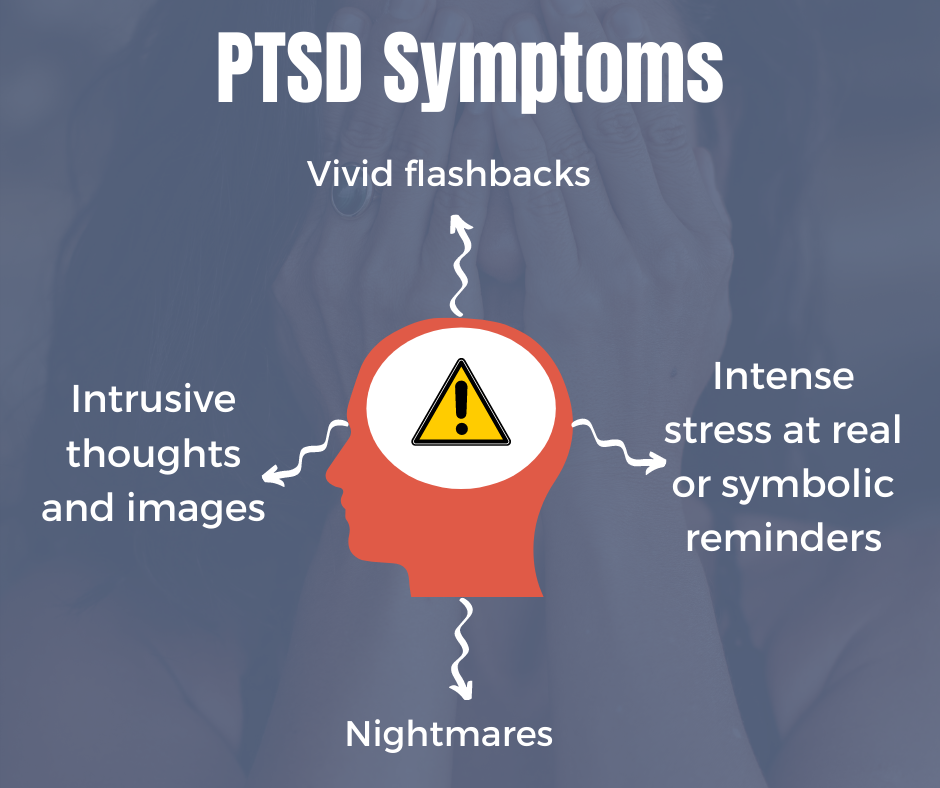What is PTSD?
 Post-Traumatic Stress Disorder (PTSD) is is an anxiety disorder caused by very stressful, frightening or distressing events. Someone with PTSD often relives the traumatic event through nightmares and flashbacks and may experience feelings of isolation, irritability and guilt. These symptoms are often severe and persistent enough to have a significant impact on the person’s day-to-day life.
Post-Traumatic Stress Disorder (PTSD) is is an anxiety disorder caused by very stressful, frightening or distressing events. Someone with PTSD often relives the traumatic event through nightmares and flashbacks and may experience feelings of isolation, irritability and guilt. These symptoms are often severe and persistent enough to have a significant impact on the person’s day-to-day life.
PTSD can develop immediately after someone experiences a disturbing event, or it can occur weeks, months or even years later. The disorder is estimated to affect about 1 in every 3 people who have a traumatic experience, but it’s not clear exactly why some people develop the condition and others do not. It is estimated that up to 3 in 100 people may develop PTSD at some stage in life.
Trauma is Not the Same For Everyone
 Trauma is not about the event; it is about the individual perception of the event. This is why trauma cannot be measured and impacts everyone differently. After trauma occurs, if we are left to navigate the emotions and experiences on our own, we can adopt shame-based beliefs:
Trauma is not about the event; it is about the individual perception of the event. This is why trauma cannot be measured and impacts everyone differently. After trauma occurs, if we are left to navigate the emotions and experiences on our own, we can adopt shame-based beliefs:
- I bought this on myself
- If I had just done X this would not have happened
- My authentic self is not good enough, I must play the role of (caretaker, peacemaker achiever) to be seen
- I am not safe in my body
- I can’t trust myself
- I deserve to be hurt
Until recently there was a lot of invalidation of trauma as people would try to relate it to their own experiences, “it wasn’t that bad, I’ve been through worse” which in turn would invalidate the feelings of the person involved and they begin to doubt their own feelings and emotions and adopt those shame-based beliefs.
Symptoms
 Much the same as other mental health concerns, there is no easy fix, or a way to ‘snap out of it’ as everyone experiences it differently and their triggers and flashbacks different too.
Much the same as other mental health concerns, there is no easy fix, or a way to ‘snap out of it’ as everyone experiences it differently and their triggers and flashbacks different too.
Common symptoms of PTSD can include:
- Vivid flashbacks (feeling as if the trauma is happening now)
- Intrusive thoughts or images
- Nightmares
- Intense stress at real or symbolic reminders of the trauma
People with PTSD may be constantly alert or on edge and find it hard to concentrate, even on everyday tasks, they may begin to adopt harmful coping strategies to avoid thinking of the event and to keep busy or even becoming emotionally numb.
Support and Treatment
 To support someone who you think may be suffering from PTSD can be tricky, especially if they have not received any professional help themselves. If you feel able, you could help by allowing them to talk and express what it is they are feeling, ask questions, but don’t judge.
To support someone who you think may be suffering from PTSD can be tricky, especially if they have not received any professional help themselves. If you feel able, you could help by allowing them to talk and express what it is they are feeling, ask questions, but don’t judge.
Learn their triggers, each person will have different experiences, it may help to try and discuss with them the sorts of situations and conversations that may trigger flashbacks or difficult feelings, by understanding what could cause triggers the situations could be avoided.
Plan ahead for difficult times, discuss with them how you can help if they become unwell. When having these conversations, make sure you also think about yourself and try to only offer support you feel you can give.
In terms of professional treatments for PTSD, these include:
- Talking therapy, specially adapted for PTSD.
- EMDR eye movement desensitisation and reprocessing. A fairly new treatment that can reduce symptoms such as being easily startled.
- Medication isn’t routinely offered, however, it may be offered if the doctor thinks it will help.
As with anything, if you are immediately concerned for someone’s health and wellbeing you can call 999/112 for emergency help. PTSD is a complex condition but the main lesson to take away is not to invalidate a person’s feelings and behaviours in response to trauma as everyone is different.
Written by Neil Ward, Training Consultant at WA Management
If you would like more general advice on how to support your employee’s mental health, WA Management’s Mental Health Awareness and Managing Mental Health online training courses are great introductory resources.
For more in-depth knowledge, we offer a range of affordable Mental Health First Aid courses delivered by our expert trainer including an open course being held this September! To learn more please get in touch.

